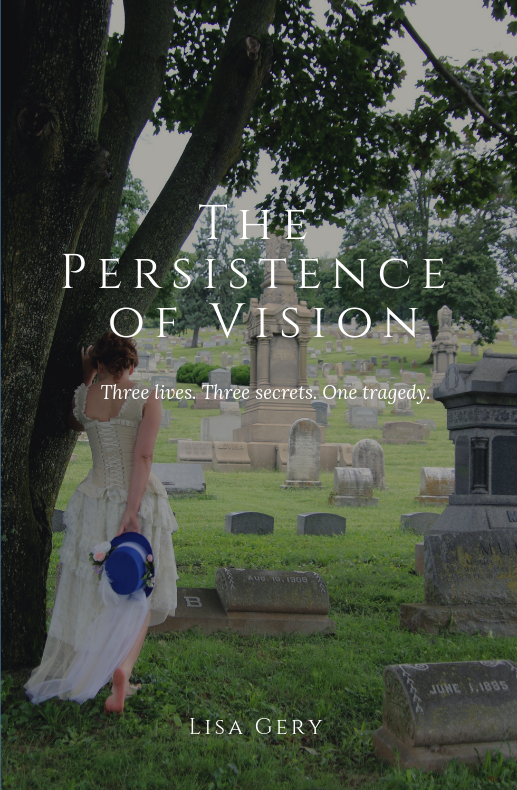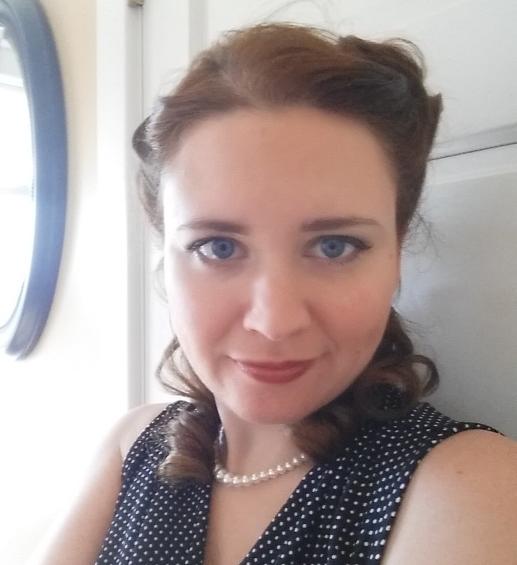Excerpt: The Persistence of Vision
I remember life before the fire. In those days, Main Street was a carnival of activity. Foot traffic pounded the brick sidewalk, lingered in the doorways, flowed and ebbed like blood through a beating heart. I would stop on the corner, under the tall porch overhang of Yuler’s Cigar Factory, and watch it all swirl around me. The sweet smell of tobacco lingered on the warm air, and I would wait there until my father returned with the object of his quest: a brightly colored, foil-adorned box of cigars from the factory shop.
In the days after the fire (or “The Tragedy” as it was referred to in the newspapers and by those who couldn’t bring themselves to utter the terrible word for fear the very mention would ignite the embers once more) the cigar factory was closed and didn’t reopen for two weeks. They had lost so many of their workforce that they could not operate.
I never realized how much I liked the smell of the tobacco that drifted faintly through the town, especially on warm summer afternoons, until it was gone, overpowered by the acrid smoke of burnt brick and timber and flesh. That smell permeated every building, no matter how tightly you shut the windows; clung to the curtains and the black bunting on the doorways that marked the houses of the deceased. As you left the town limits the smell mercifully dissipated, but the black crepe adornments did not.
Evansville was a shining jewel in 1908; a bustling hub of industry and commerce wrapped in a quaint, small-town package. Large enough to foster growth and expand the town into the farm fields surrounding it little by little, and prosperous enough to line the side streets with spacious Victorian homes, laden with ornate trim and boldly painted details. And yet, despite this growth, it was still secluded enough that generation after generation of founding families settled there, their lives and their businesses intertwined, the fabric of their lives becoming one cloth.
But perspective can change in an instant. Jewels can lose their shine, and even a stone can be broken.
After a night like August eighteenth, you could be considered fortunate to lose half your family—only half. Blessed that you weren’t among them. Lucky you didn’t lose them all. You would see ash in the street and wonder what it consisted of. Even the air was tainted but you had to breathe it in anyway, and you tried not to let yourself think about the details or contents of anything.
Guarded. Always guarded.
I remember life before the fire, but sometimes it seems so long ago that I think I might have dreamed it.
* * * * * * * * * * *
In Union Cemetery, on the top of the highest hill, there is a monument. A tall marble angel, sturdy and graceful, holds a wreath bearing the fateful date. Her head is bowed as she looks down at the granite platform on which she stands and reads the twenty-six names engraved on its base. This peaceful hill is where they brought the ones who would never find rest—the twenty-six out of one hundred and eighty-two who perished in the fire and were never identified. Once everyone they could account for was buried in their family plots, they brought who was left—and what was left—to the mass grave at the angel’s feet. Never claimed; never whole. Recognized only by the process of elimination.
When it rains, she weeps, alone on the hill where no one can see.
I sit here often and look out over the town. In the days after The Tragedy I realized if you could get high enough you could rise above the smoke and the horror. Hidden here above it all, nothing could touch me. The angel and I kept vigil over the ruins, waiting for the earth to settle and the walls to fall and new ones to rise.
“You can never start over—you can’t erase the past,” I said to her on the day they rebuilt the theater and opened its doors. “Nothing will ever be the same.”
She didn’t respond. She didn’t need to. It was simply a statement of hard-learned truth.




